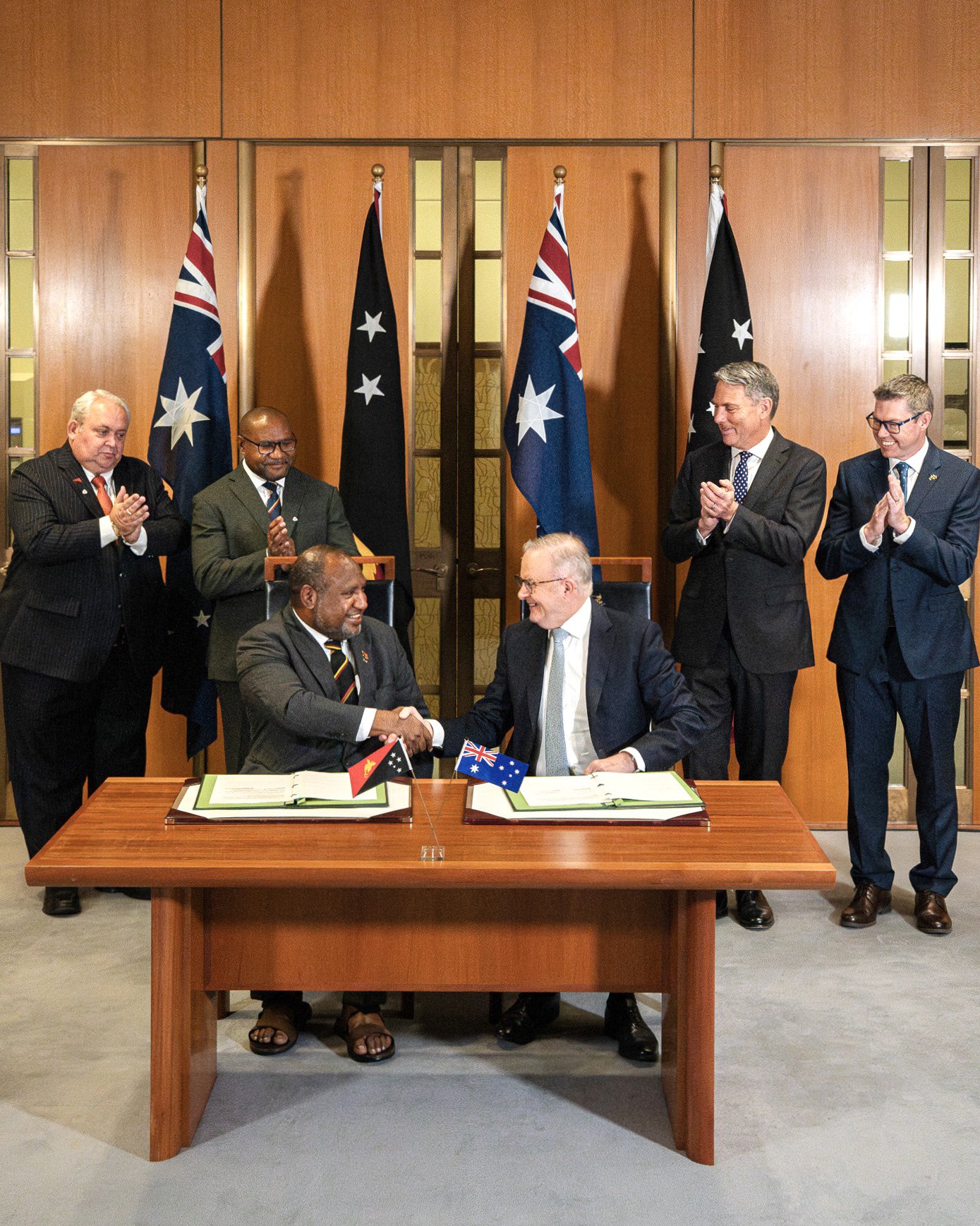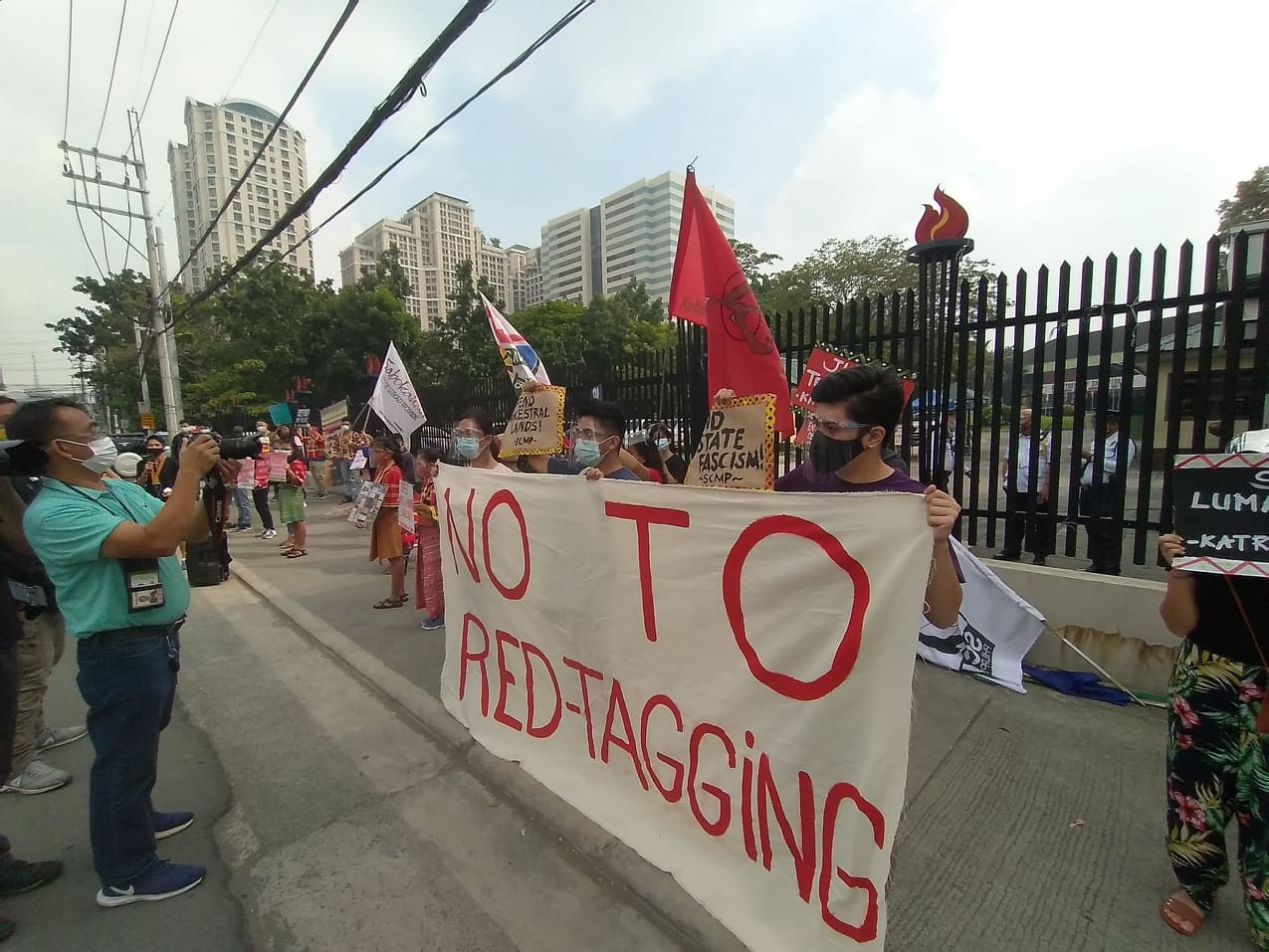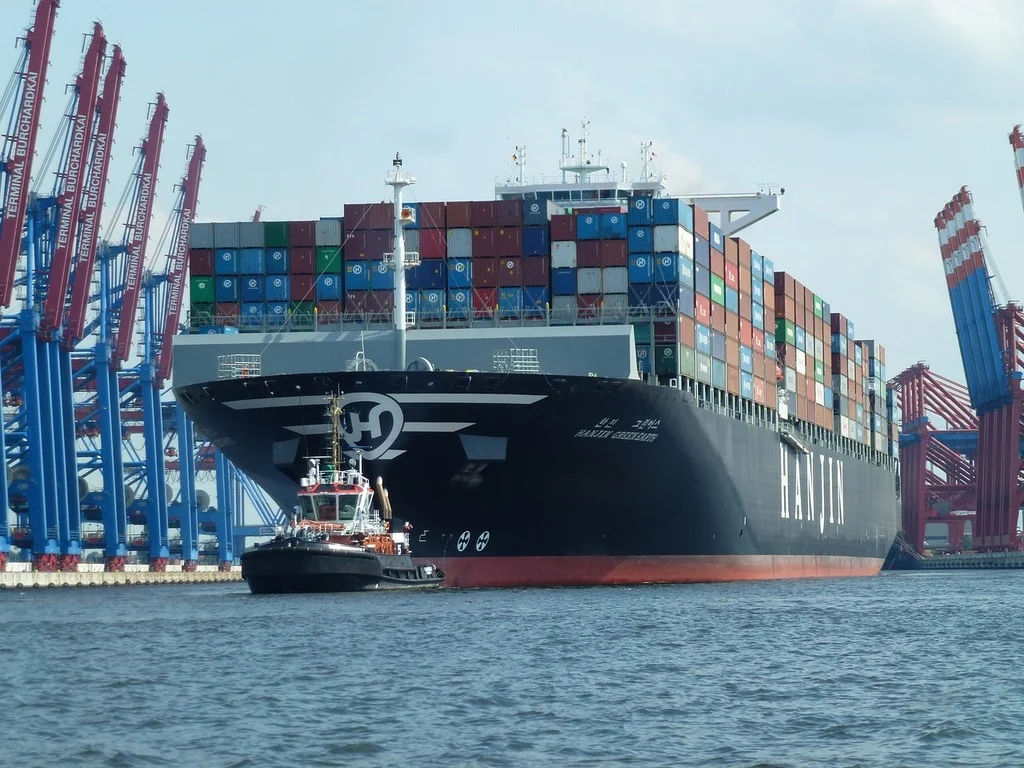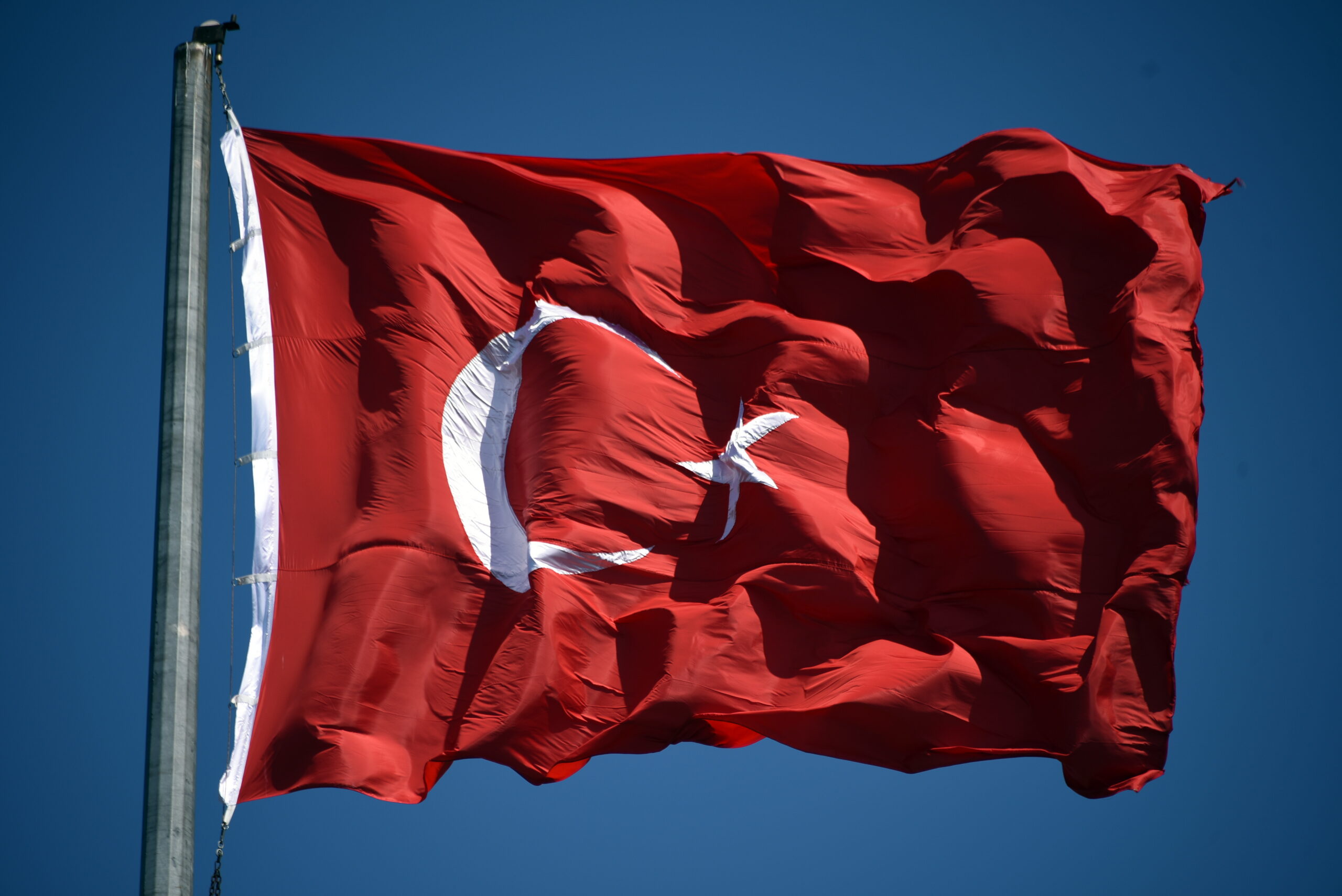On October 6, Papua New Guinea’s Prime Minister James Marape and Australian Prime Minister Anthony Albanese met in Canberra to sign a historic bilateral Security agreement, the ‘Pukpuk Treaty, the first Australian defense treaty in over 70 years. “Pukpuk,” meaning “crocodile” in Tok Pisin, represents endurance and guardianship in Papua New Guinea (PNG). Like the crocodile, the subtle mobilization of the Pukpuk treaty aims to expedite Australia’s strategic security partnership with PNG out of the water.
The Agreement has raised tensions with Beijing, signaling an increased Australian and Western influence over the South Pacific. Social media activity from Beijing claims the defense agreement is part of a broader effort of Australia and Western allies to alienate Chinese influence. PNG Secretary of Foreign Affairs Elias Wohengu argues that PNG will maintain sovereignty, and claims that misinformation regarding the treaty’s intent for militarization of PNG as malicious and inciteful.
The treaty serves as an expansion of Australian mutual defense treaties like ANZUS, which secured US defense backing for Australia and its close ally New Zealand. Commitment to bilateral security agreements like Pukpuk extend Australian deterrent capabilities to Pacific nations and the security of Australian-US interests.
Revitalization of existing security agreements
The treaty comes from a deep, interconnected military history between the nations. Since PNG’s independence as a territory in 1975, Australia has maintained a security grip inside the nation. PNG President James Marape has upheld his desires to maintain national sovereignty and a pacifist foreign policy attitude, expressed by a diplomatic mantra of “Friends to all.” PNG motives from the treaty outline the necessity of preserving peace and order in the South Pacific, particularly Chinese trade, while honoring commitments to long term allies through mutual defense agreements. However, PNG protection against ongoing Indonesian border contentions remains obscure, suggesting Australian focus on Chinese influences. The treaties provisions on mutual security bolsters existing PNG-Australian defense agreements from 2013 and 2015, serving as an extension of logistic and military support to the nation.
A scramble for control in the South Pacific
Marape and the PNG Secretary of Foreign Affairs assert that no agreements, including the Pukpuk Treaty, are made to the exclusion of third party actors through security or commercial movements. Beijing’s security partnerships in the Pacific could be the catalyst for a Western race for security and economic partnerships. The 2023 China and Solomon Islands security partnership created a relationship between the Solomon Islands police and security forces and China. This followed a secretive partnership security agreement signed between the Solomon Islands and Beijing. The same year, US Secretary of State Antony Blinken visited PNG to sign an bilateral defence cooperation agreement, shortly after former President Joe Biden met with the US Pacific Islands forum for regional security partnerships. Nations present were the Cook Islands, Kiribati, and PNG.
US motives follow similar goals of infrastructure and energy goals. US Defense Secretary Lloyd Austin outlined a US Pukpuk equivalent treaty, with a framework for enhanced defense cooperation between the US and PNG. In exchange, for unrestricted access to PNG ports, security assurances, and access to deep sea mining, the US will support military modernization and defense infrastructure development. The treaty has yet to be signed by PNG, as ongoing negotiations concern national sovereignty and mutually expanding strategic security partnerships.
Beijing’s hand in the Pacific extends to the Cook Islands, which received a $20 Million dollar injection last year into their economy, affirming Chinese intentions for government prop-up initiatives. Responding in April to Western criticism the Cook Islands claimed Australian and New Zealand neglected national funding, prompting a deal with Beijing for aid in developing infrastructure.
With a desire for enhanced presence in the South Pacific, Australia promises to revive PNG’s defense capabilities through the Pukpuk treaty, posing PNG as strategic buffer zone for Australian forces. Under the treaty terms, ADF and Australian defense contractors will have access to PNG resources and military equipment, reigniting PNG capabilities and Pacific security goals of Australia, secured through bilateral military exercises, the exchange of intelligence, and military control of PNG and ADF forces by Australian Defense Command.
The Pukpuk treaty is another step towards augmenting a power war between the West and East. PNG is one of many independent Pacific Island nations that are increasingly functioning as proxy nations, both through influence and as buffer zones between China and the West. To balance a growing Chinese influence, monitoring the potency of the Pukpuk treaty and its security guarantees will be critical for South Pacific diplomacy and western success in future bilateral and multilateral security agreements.
James Fraser is currently pursuing a degree in International Relations at George Mason University. His academic focus lies in security and intelligence issues within the South Pacific region.
This article is published under a Creative Commons License and may be republished with attribution.





